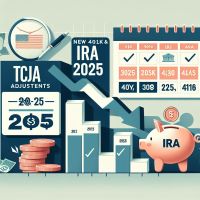One certainty in investing is that markets rarely go straight up. While we know market volatility is a given, extreme market moves – the big declines that can approach or exceed the 20% drop that typically defines a bear market – can be unsettling for most investors.
While equity markets go down, they also can stage powerful recoveries. Some of the strongest single-day rallies tend to occur within down-trends, it is important to be aware of the overall market environment and take steps to manage risk in advance of an stock market decline rather than in a reactive fashion when emotions and fears can overwhelm perspective.
KNOW YOUR EMOTIONS
Behavioral economists tell us that too many investors sell when they should buy during down markets. They let emotions – not reason- drive their decision-making. Studies illustrate that investors feel the pain of your loss more than they feel the joy of a gain. When you start to feel pressure to sell during a downturn, remind yourself of past downturns and the recoveries that followed. When you have these feelings, reach out to your advisor to discuss your long-term plan and try not to let your emotions drive your decisions.
USE THE MARKET DOWNTURN TO YOUR ADVANTAGE
While it’s impossible to predict when the market will turn, use the power of re-balancing to your advantage. When markets behave irrationally, we will be re-balancing your account to adjust back to your target asset allocation. This action will allow you to take advantage of companies that have “gone on sale” increasing your long-term returns.
RESIST THE TEMPTATION TO TRY AND RECOVER YOUR LOSSES ALL AT ONCE
Doubling down on poor investments or reaching for an aggressive investment that might have a higher upside (but also a lower downside) could leave you in an even worse position than before. Rome wasn’t built in a day; rebuilding a portfolio after a period of losses is best done with a systematic, well planned approach. Reaching for a home run may work sometimes, but more often than not it leads to additional losses.
FUND YOUR EMERGENCY ACCOUNT
We recommend that everyone have cash that could cover 4-6 months of expenses in a separate account for emergencies. This account should be separate than your checking account and should pay a higher interest rate. We currently offer a Schwab money market accounts if you are unable to get a higher paying option from your bank. Talk to your advisor for more information.
BE CAREFUL OF RMDS
Retirees over 70 ½ who are required to withdraw money from retirement accounts should consider waiting to withdraw funds until later in the year. If you do not plan to spend your RMD, delaying the taxable income that could be generated by your distribution outside of your tax deferred account is always a good idea. Not to mention riding out any volatility.
IF YOU REALLY CAN’T SLEEP
If you are staying up at night over worries about losing money, it may be time to reevaluate your allocation to equities. Be open and honest with your advisor. This is a sign your tolerance for risk has changed and it might be time to reallocate your portfolio to lower return investments that may be safer and less volatile.
To learn more about market volatility or answer any questions you may have please contact Davis Capital Management’s office. We are happy to discuss what investment opportunities may be available to you.





